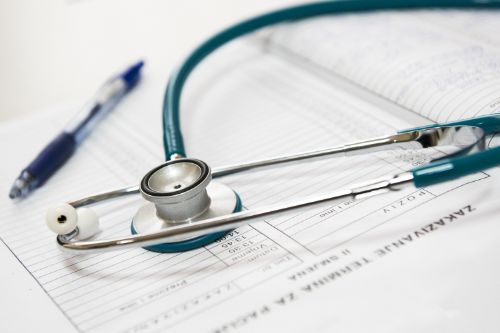I grew up with a fear of needles. My pediatrician, when I was a child, did not have the softest touch, you see. All I remembered was that she would squeeze the part of my arm to inject the needle and jam it there without warning. It wasn’t very good, to say the least. Because of that, when I became an adult, and my parents were like, “You are old enough to get an executive checkup every year now,” I said, “Uh, no, thanks.”
The reason was that I had seen my parents get those checkups in the past and knew that one consisted of a lot of examinations, and some of them would require blood extraction. Meaning there would be needles involved. Even if my parents told me that not all doctors and nurses were as harsh as my old pediatrician, I still did not want to take chances.
Another reason why I was not so keen on getting an executive checkup was that I felt healthy. I was 5’1; I weighed 71 kg. I was technically overweight, but I felt normal. I said I knew my body more than anyone and was also very young at the time (only 26).

When The Deed Had To Be Done
There were three long months when I worked nonstop due to overlapping projects. I would wake up at 8:00 a.m. and go to work by 9. While most people would go home at 5 o’clock, I would stay in the building until midnight, finishing my projects. To keep me awake, I would order fast food all the time, feeling like the greasy foods would help compensate for my exhaustion.
Sooner than later, though, my feet started aching. For instance, since I had my own office, and I would be alone there most of the time at night, I would sit in an Indian position. I used to do that for hours, but this time, my feet and ankles began to ache after two hours. I found it odd, but I thought that I merely overextended my feet. After all, I learned that it was a thing and that it was nothing that a good exercise could not fix.
During the weekend, I decided to go hiking. I loved working out outdoors instead of signing up for a gym membership; I had just not been able to do that because of my busy schedule in the last few months. However, I noticed that I had difficulty breathing after only walking for 3 kilometers. It used to be easy-peasy for me, considering I had solid lungs and did marathons not too long ago.

Then, when I went on an eight-hour car ride with my friends, I was only a passenger, so I got to extend my feet. I was not paying attention to them, but it felt like someone was gripping my ankles, making my feet a little numb. Once I looked down, I saw that they were very swollen. That’s when I got scared. That’s when I thought, “Oops, that’s not normal. I need to see a doctor after this trip.”
I called our family doctor first and told him about my symptoms. Since I was overweight and knew about my relatives’ history with diabetes, he wanted me to do a fasting blood sugar test to rule out the possibility of me having the disease. It turned out I was prediabetic, but it could be resolved quickly. It could not be the reason why I experienced achy or swollen feet or breathlessness.
The doctor then asked me to get FSH, FT3, and FT4 lab tests as they were all meant to check someone’s thyroid conditions. It sounded a little scary to me. It meant more needles, but there was no going back. I got the tests done, and when the results returned, the doctor gave me devastating news. My thyroids were flaring up.

I most likely have Hashimoto’s disease, a form of autoimmune disorder that affects the thyroid gland. The doctor said there was no cure for it except for a significant lifestyle change and constant monitoring. He must have noticed my devastation; before I left, he recommended a counselor to me. He said, “Sometimes, we need help in accepting a medical diagnosis.”
Counseling
Our family doctor was spot-on – I could not accept that I had an autoimmune disorder. I knew that my aunt had that, but she got diagnosed in her early 40s. I was too young to worry about chronic illnesses like that.
Those were just some of the issues I mentioned once I contacted the counselor. She was patient enough to listen to me, although I felt like a whiny little kid while doing so. “How can I accept it?” I asked in the end.

“Well, you need to see it in another light. Do you think it’s better if you have not known about your illness? No – it may have aggravated that way. Instead of getting upset, it is healthier to be thankful for knowing your medical condition early so that you can stop doing things that can make matters worse than ever.”
I had to do counseling a few more times, but those words stuck to me. The counselor was correct in every way. I should be grateful for an early diagnosis, so that’s what I tried to do. It was not the doctor’s fault that I had Hashimoto’s disease, after all. I had to change my lifestyle habits, work less, exercise more, and eat more healthily.
I would have become depressed instead of thinking of that if I did not see a counselor immediately.
